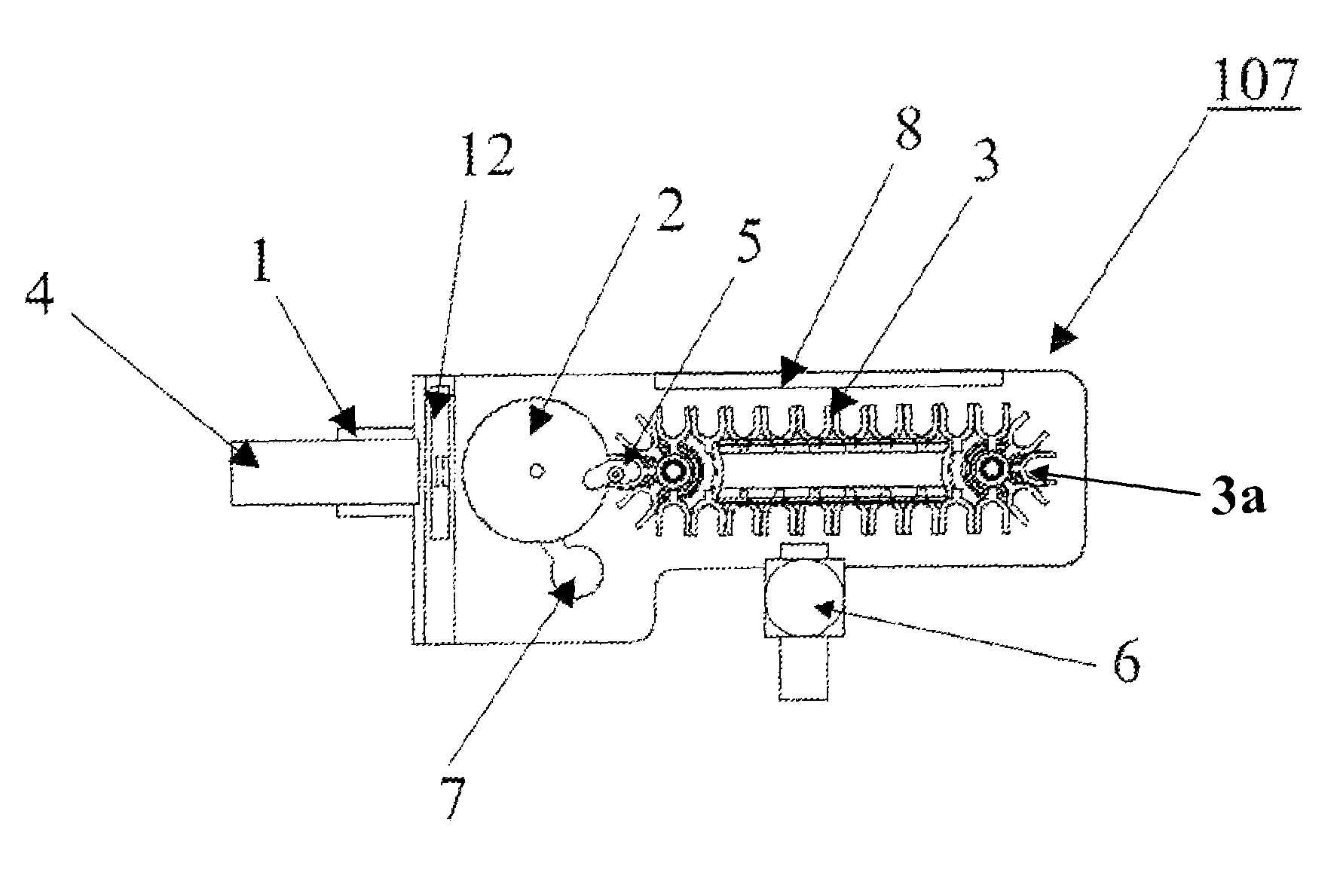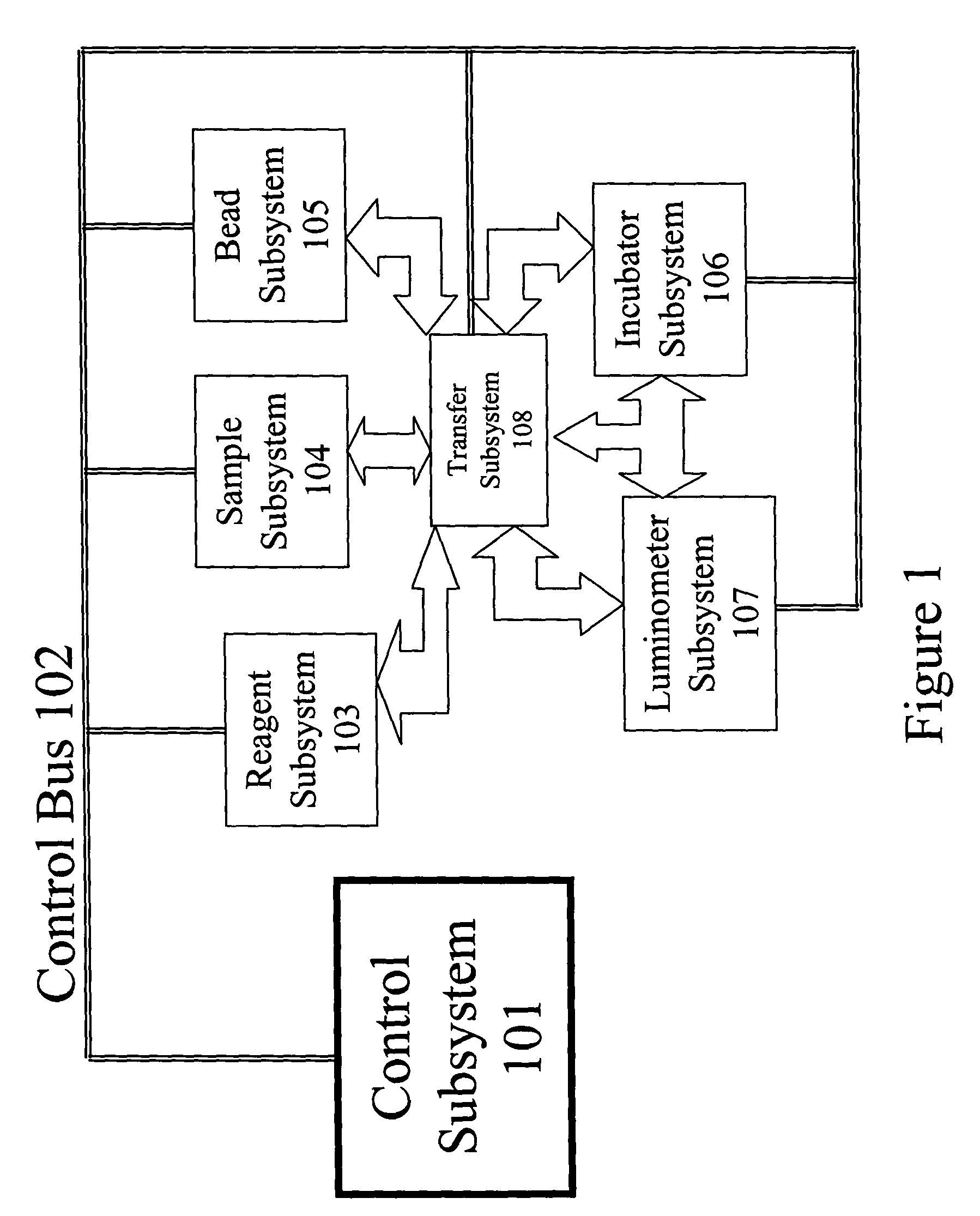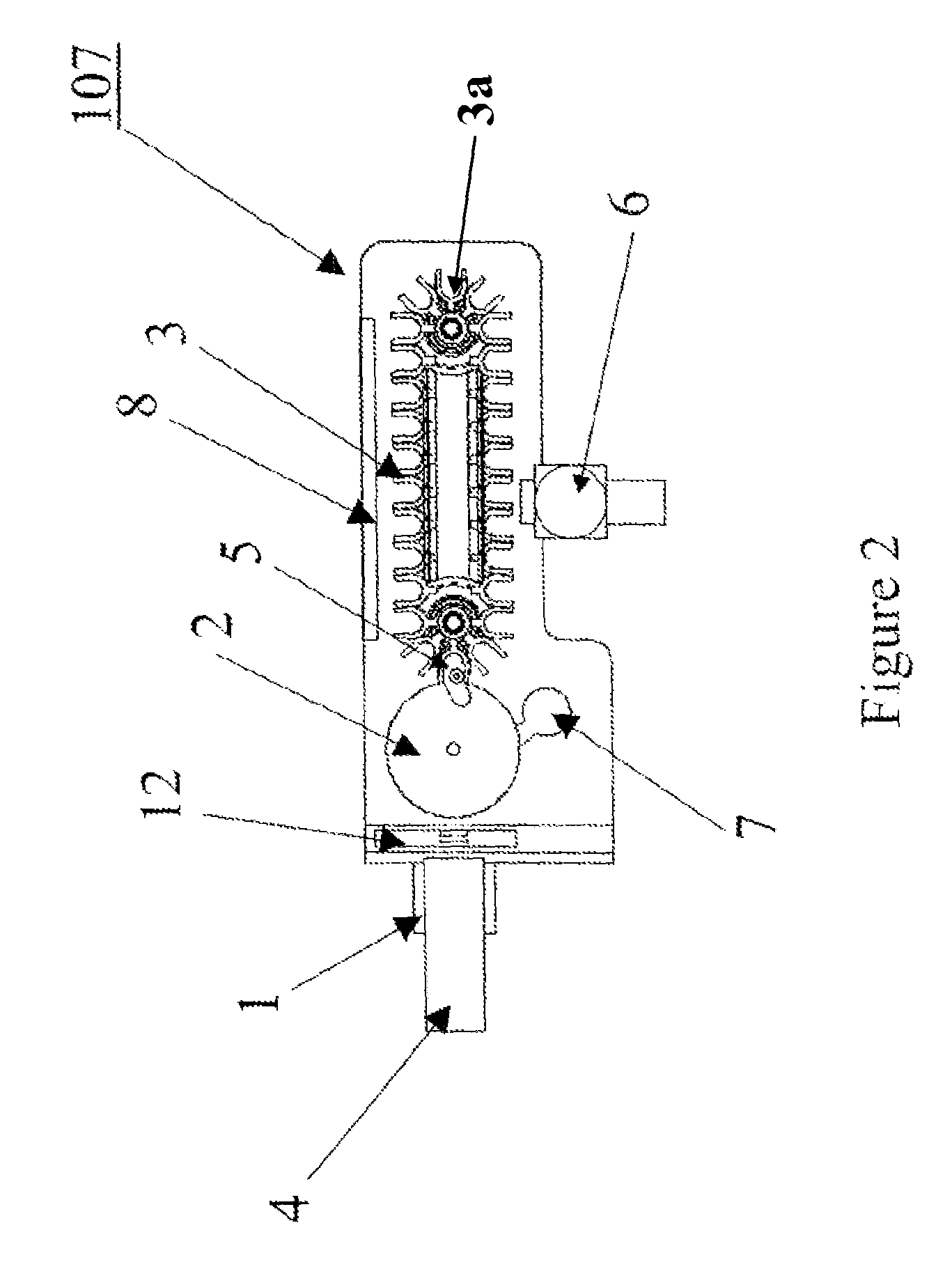Rotary luminometer
a luminometer and rotary technology, applied in the field of luminometer subsystems, can solve the problems of variance in the accuracy of certain assays within automated immunoassay analyzers, and the inability to optimize individual assays, so as to reduce cross talk radiant light interference, optimize the time duration of the type of test being performed, and improve the accuracy of immunoassays.
- Summary
- Abstract
- Description
- Claims
- Application Information
AI Technical Summary
Benefits of technology
Problems solved by technology
Method used
Image
Examples
Embodiment Construction
[0025]Referring now to the drawings, and more particularly to FIG. 1, which shows an automated immunoassay analyzer as a complex system with numerous subsystems that allow the tests to be performed without the continuous monitoring and intervention of a technician. The technician selects the tests to be performed for each sample and enters this information via the control subsystem 101. The control subsystem 101 manages the other subsystems by sending command and control information via the control bus 102. Samples of biological material (e.g., blood, urine, plasma, etc.) are placed by the technician in the sample subsystem 104. The samples within the sample subsystem 104 can be diluted prior to making measurements or can be tested in the undiluted state depending on direction from the control subsystem 101. The bead subsystem 105 adds the appropriate substrate having a bound “analyte binding compound” to the test vessel. Preferably, the substrate is present in the form of one or mo...
PUM
| Property | Measurement | Unit |
|---|---|---|
| radiant energy | aaaaa | aaaaa |
| chemiluminescence | aaaaa | aaaaa |
| fluorescence | aaaaa | aaaaa |
Abstract
Description
Claims
Application Information
 Login to View More
Login to View More - R&D
- Intellectual Property
- Life Sciences
- Materials
- Tech Scout
- Unparalleled Data Quality
- Higher Quality Content
- 60% Fewer Hallucinations
Browse by: Latest US Patents, China's latest patents, Technical Efficacy Thesaurus, Application Domain, Technology Topic, Popular Technical Reports.
© 2025 PatSnap. All rights reserved.Legal|Privacy policy|Modern Slavery Act Transparency Statement|Sitemap|About US| Contact US: help@patsnap.com



